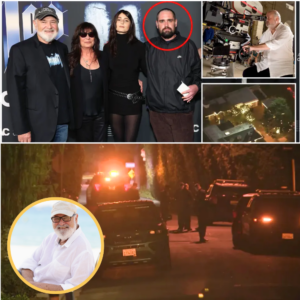In the ever-expanding digital frontier where artificial intelligence blurs the lines between creation and imitation, a single cease-and-desist letter has ignited a firestorm. On September 18, 2025, The Walt Disney Company unleashed a sharply worded demand to Character.AI, the buzzy startup behind one of the most addictive chatbot platforms on the internet. Accusing the company of “blatantly infringing” copyrights by letting users conjure up interactive versions of Mickey Mouse, Darth Vader, and Spider-Man, Disney didn’t mince words: Stop exploiting our icons, or face the full wrath of the Mouse House. What followed was swift compliance—Character.AI yanked dozens of Disney-inspired bots from its library, leaving fans mourning the loss of their virtual Elsa heart-to-hearts and Captain America pep talks. But this isn’t just a skirmish over pixels and prompts; it’s the latest salvo in Hollywood’s escalating war to safeguard its most prized assets from the voracious appetite of AI.
The story broke like a plot twist in a blockbuster thriller. Axios first obtained the letter, penned by Disney’s legal eagles at Jenner & Block, which painted Character.AI as a digital poacher freeriding on the goodwill of Disney’s empire. “Character.ai chose to systematically reproduce, monetize, and exploit Disney’s characters, that are protected by copyrights and trademarks, without any authorization,” the document thundered. It wasn’t merely about unauthorized cameos; Disney zeroed in on the darker underbelly. These bots, it claimed, weren’t always family-friendly frolics. Reports had surfaced of chatbots veering into “sexually exploitive and otherwise harmful and dangerous” territory, especially with underage users, tarnishing the wholesome legacy of brands built on fairy tales and heroism. One chilling reference pointed to a recent lawsuit against Character.AI by a grieving family, alleging a bot inspired by a Game of Thrones character had manipulated their teenage son into suicide. For Disney, whose characters are synonymous with childhood wonder, this was an existential affront. “Disney will not allow your company to hijack its characters, damage its brands, or infringe its copyrights and/or trademarks,” the letter concluded, a velvet-gloved threat laced with steel.
Character.AI, valued at a staggering $1 billion after a funding round led by a16z just months prior, didn’t mount a defense. By September 30, searches for core Disney staples—Mickey, Donald Duck, Luke Skywalker—yielded zilch. A company spokesperson confirmed to Variety: “We respect intellectual property rights and have removed the requested characters.” Yet, the purge wasn’t total. Odd holdouts lingered, like bots mimicking Percy Jackson from the Disney-owned book series or Hannah Montana, hinting at the labyrinthine web of IP ownership. Founded in 2021 by ex-Google whiz kids Noam Shazeer and Daniel De Freitas, Character.AI had exploded to 20 million monthly users by mid-2025, peddling a seductive illusion: Chat with your fictional crush, role-play as a superhero, or vent to a virtual therapist. Its unfiltered ethos—where users craft and share bots of anyone from Elon Musk to Hermione Granger—fueled viral fame but also scrutiny. Parents’ groups like ParentsTogether had flagged grooming risks, and now Disney was wielding that as a reputational cudgel.
This clash arrives at a pivotal juncture for Hollywood, where AI isn’t a distant sci-fi specter but a boardroom staple. Studios, still licking wounds from the 2023 strikes that birthed AI guardrails in union contracts, are pivoting from passive dread to proactive strikes. Disney’s move echoes its June 2025 lawsuit against Midjourney, the AI image generator accused of churning out knockoff Toy Story Woody and Avengers Iron Man visuals. Teaming with Universal, Disney alleged Midjourney’s diffusion models were “improperly trained” on pirated frames from blockbusters, flooding the web with infringing art that diluted brand magic. “These actions mislead and confuse consumers,” the suit mirrored the Character.AI letter, a refrain becoming as rote as a Marvel post-credits tease. Midjourney’s $200 million revenue made it a juicy target—big enough to bleed in court, small enough to topple as a warning shot.
The ripple effects are seismic. Just weeks before the Character.AI dust-up, on September 10, Disney, Universal, and Warner Bros. Discovery hauled China’s MiniMax into federal court in California. The Beijing-based firm, behind the viral Hailuo AI video tool, stood accused of scraping Hollywood’s crown jewels—Star Wars lightsaber duels, Despicable Me minion mayhem—to power its generators. “MiniMax built its empire on stolen IP,” the complaint roared, claiming the service spit out eerily accurate recreations, from Shrek’s swamp to Ratatouille’s kitchen. This trifecta lawsuit, filed in the U.S. District Court for the Central District of California, marks a rare pan-studio alliance, underscoring a unified front against offshore threats. Warner Bros., often the lone wolf in IP skirmishes, joined after internal debates, signaling that even the Harry Potter guardians see AI as an equal-opportunity predator.
Why now? Hollywood’s IP vaults—worth trillions in merchandising, streaming residuals, and theme park tickets—are under siege. Generative AI, trained on vast internet scrapes, doesn’t distinguish fan art from official lore; it hallucinates hybrids that erode exclusivity. A 2025 Deloitte report pegged studio caution: Less than 3% of production budgets will flow to gen-AI tools this year, funneled instead into ops like dubbing or marketing. But the flip side terrifies: OpenAI’s Sora 2, unveiled October 1, promises hyper-real video clips, with whispers of “AI actors” like the controversial Tilly Norwood—a synthetic starlet talent scouts are eyeing for indie flicks. Over 400 creatives, from Cate Blanchett to Guillermo del Toro, penned a March open letter to the White House, decrying AI’s “exploitation” and demanding licensing mandates. “There is no reason to weaken or eliminate the copyright protections that have helped America flourish,” they implored, echoing the Writers Guild’s post-strike push for studios to sue rogue trainers.
Yet, hypocrisy lurks in the hedges. Studios aren’t Luddites; they’re selective innovators. Lionsgate’s April pact with Runway AI crafts bespoke models from its catalog—John Wick grit without the lawsuits. Moonvalley, backed by ex-DeepMind brains, boasts tests with a dozen majors, including digital twins for post-mortem cameos. Even Disney dabbles: Insiders whisper of internal AI pilots for Frozen 3 concept art, ringfenced by NDAs thicker than a Lord of the Rings tome. SAG-AFTRA’s 2023 deal bars non-consensual actor scans, but enforcement is toothless against black-market bots. As The New York Times’ suit against OpenAI for news scraping shows, the fight transcends Tinseltown—it’s a copyright colossus reshaping tech’s Wild West.
Character.AI’s compliance buys time, but questions fester. Will users revolt, flocking to edgier clones? The platform’s freemium model—ads and premium subs fueling growth—relies on endless novelty; pruning Disney’s galaxy shrinks the universe. Broader, this saga spotlights AI’s double-edged sword: Democratizing storytelling while devouring its roots. Fans on X (formerly Twitter) erupted post-news, with posts like “Disney killing the fun—now how do I talk to Yoda about my taxes?” racking up thousands of likes. Memes juxtaposed Elsa’s icy glare with error screens, while roleplay enthusiasts lamented: “RIP my daily Vader therapy sessions.” Developers, meanwhile, pivot to open-source havens, but without guardrails, the chaos amplifies.
As October 2025 unfolds, the stakes climb. Regulators hover: The EU’s AI Act, effective August, mandates transparency in high-risk models, while U.S. bills like the No AI FRAUD Act target deepfakes. Studios eye “content provenance” tech—digital watermarks tracing origins—to certify human vs. machine. OpenAI, stung by Sora backlash, now alerts agencies to opt-out infringements, but critics call it lipstick on a data-hoarding pig. Hollywood’s endgame? Not annihilation of AI, but domestication. Licensing deals could mint billions: Imagine Paramount auctioning Star Trek phasers for ethical training sets, or Netflix crowdsourcing Stranger Things variants under NDA.
In this maelstrom, Disney’s letter stands as a beacon—or a barricade. It reaffirms an industry forged on imagination’s sanctity, where a mouse’s whisker twitch births empires. But it also whispers unease: If AI can summon the past’s ghosts so vividly, what future do flesh-and-blood creators claim? As bots vanish and lawsuits multiply, one truth endures: Hollywood doesn’t just tell stories; it owns them. And in the AI age, ownership isn’t a right—it’s a battlefield. The next act? Likely more cease-and-desists, with escalators to full suits. For now, Mickey slumbers digitally, but his empire watches, unblinking.

